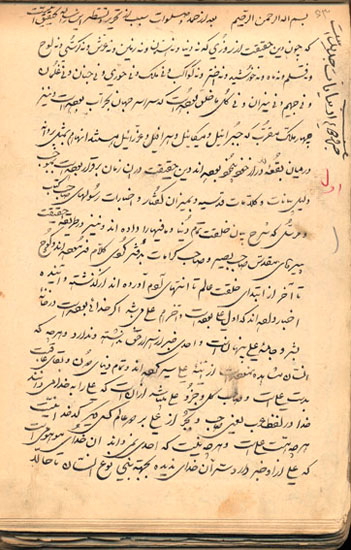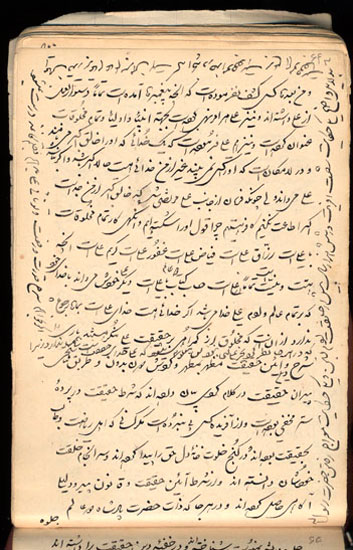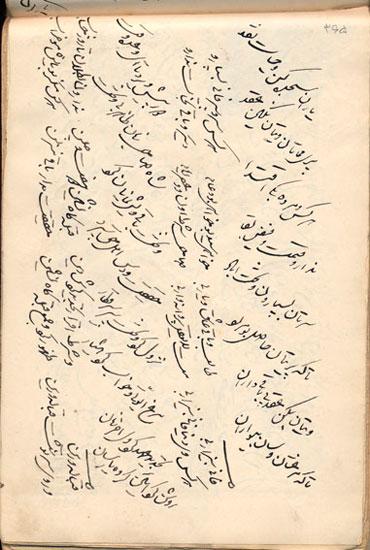Works of Hadj Nemat

Forqan ol-Akhbar
Among the most important works of Hadj Nemat in Persian prose, the renowned Orientalist Vladimir Minorsky has introduced Proof of the Tradition as one of the primary and highly significant sources on understanding the Ahl-e Haqq order. Although he attempted to have it published in the 60s, the book has yet to appear in print. Currently, parts A and B are under study as the subject of a doctoral thesis at Paris University.
Hadj Nemat states that he originally composed Proof of the Tradition in Kurdish verse and subsequently translated it into Persian prose so that it could become accessible to everyone. The book is comprised of four parts: the first features introductory notes and a declaration of the author's mission. The second addresses the creation of the world, humankind, and the appearance of the successive theophanies. The third is autobiographical and describes the author's internal states, while the fourth expounds on the orders, prescriptions, and proscriptions of the Ahl-e Haqq.
The prose is remarkably simple, fluid, and pleasant. Although the text is replete with Kurdish terms, phrases, and expressions, they do not detract from the eloquence or fluency of the text for unfamiliar readers. The style is not formal and literary, but rather informal and conversational, and the work is mostly conveyed in the form of stories and discourses.
Completed in 1909, Hadj Nemat proclaims in this work that he was commissioned by the "Lord of the Age" to establish the Religion of the Lord of the Age. His mission is described as reviving and restoring the edifice of the religion of Truth in order to prepare the groundwork for the appearance of the divine manifestation. At the same time, he declares the establishment of a twelfth khanedan or dynasty (the dynasty of the Lord of the Age). He proclaims that the old order has been renewed, and henceforth the legitimacy of the old dynasties has been abrogated. He informs the reader that it is improvident to follow the dead and that one should obey a living leader and swear allegiance to this new dynasty. Based on his immense love and reverence for Ali, in several places he mentions that his aim in writing these matters is to demonstrate the revolution of the theophanies and the truth of Ali.
In addition to the foregoing, Hadj Nemat provides considerable counsel and guidance to the reader. It is as if he has chosen this conversational tone so that by recounting these stories and anecdotes, he can attract the reader's attention and convey spiritual advice and recommendations, thus making him contemplate the other world while strengthening his motivation to accumulate provisions for that world. In several places, he repeatedly encourages the reader to accept and abide by the precepts of the theophany of the time.
















